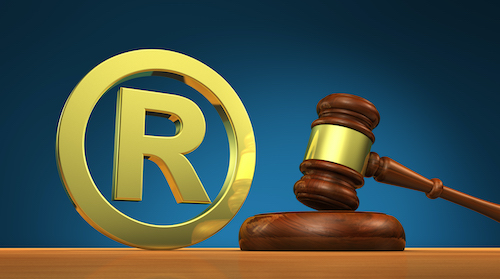Solicitor General to Participate in Oral Arguments in Abitron v. Hetronic on Extraterritorial Applications of the Lanham Act
“Applying the Lanham Act to foreign defendants in foreign countries would require extending Steele beyond its self-imposed boundary.” – Reply Brief of Abitron Austria
On February 27, the U.S. Supreme Court granted a motion for leave filed by the U.S. Solicitor General to participate in oral argument, as well as for divided argument and for enlargement of oral argument time, in Abitron Austria GmbH v. Hetronic International, Inc. While the Court’s decision to grant the motion shows its interest in the Solicitor General’s arguments in favor of limiting the extraterritorial reach of the Lanham Act, a reply brief filed the same day by petitioner Abitron argues that the federal government’s proposed legal tests still go too far in allowing Lanham Act claims to reach foreign infringing sales.
Last September, the U.S. Solicitor General filed a brief representing the views of the federal government on the issues in Abitron Austria, a case which asks whether the U.S. Court of Appeals for the Tenth Circuit erred in awarding civil remedies under the Lanham Act for infringement of U.S. trademarks through purely foreign sales that neither reached the United States nor confused U.S. consumers. In its brief, the Solicitor General urged the Supreme Court to grant Abitron’s petition for writ of certiorari and rein in the Tenth Circuit’s approach toward awarding Lanham Act damages for foreign infringing sales.
Abitron: Steele Is a ‘Roadmap of What Not to Do’ Under Current Doctrine
While the Solicitor General’s brief argued that the Tenth Circuit went too far in its extraterritorial application of the Lanham Act, it also argued that there were circumstances where civil remedies could be available for foreign infringing sales under the Supreme Court’s 1952 decision in Steele v. Bulova Watch Co. While such applications of the Lanham Act must still be primarily concerned with domestic conditions, the Solicitor General cited Steele for the proposition that foreign infringing sales can be remedied under the Lanham Act when the ill effects of the infringing conduct, such as consumer complaints about counterfeit products, occur within the United States.
However, Abitron’s reply brief contends that Steele’s holding does not overcome the presumption that trademark law only applies territorially. The Lanham Act’s definition of “commerce” does not unmistakably instruct that the statute applies to foreign conduct as required by the U.S. Supreme Court’s 2016 ruling in RJR Nabisco v. European Community, petitioner Abitron argues. In responding to arguments raised about Steele, Abitron noted that ruling was premised on the district court’s authority to hold a citizen and resident of the United States liable for infringing conduct committed abroad. “Applying the Lanham Act to foreign defendants in foreign countries would require extending Steele beyond its self-imposed boundary,” Abitron’s reply brief reads.
Indeed, “Under current doctrine, Steele is a veritable roadmap of what not to do,” Abitron’s reply brief argues to the Supreme Court. In deciding the jurisdictional issues at play in Steele, the Court considered whether Congress would have wanted the Lanham Act to reach the facts at hand, which does not meet the standard from RJR Nabisco requiring that Congressional statutes unmistakably invoke extraterritorial application. Further, Abitron contends that Steele never considered conflicts between remedies available under U.S. and foreign law, nor did the Court consider the impact of relevant international trademark treaties. As a result, “[t]he Court may conclude Steele lacks vitality in any context, its ‘outmoded’ reasoning having ‘fallen far out of step with’ intervening precedent,” Abitron adds.
Domestic Confusion, Effects Tests Risk International Discord with Other Nations
Abitron also rejected the Solicitor General’s contentions that the Lanham Act could apply domestically to foreign conduct if the conduct has a requisite effect within the United States. “[T]hose ‘effects’ tests just slap a ‘domestic’ label on extraterritorial applications,” Abitron’s reply brief reads. It continues:
“An ‘effects’ test would make the presumption against extraterritoriality a heads-I-win-tails-you-lose proposition: Either a statute overcomes the presumption and applies extraterritorially to foreign conduct based on effects here, or it does not overcome the presumption and applies domestically to foreign conduct based on effects here. A presumption so easily defanged ‘would be a craven watchdog indeed.’”
While Abitron found the Solicitor General’s “domestic confusion” test to be less outlandish, it “is equally unpersuasive” according to the petitioner. This standard would cause infringement liability to turn on the location of the mental state of confusion without any clear standard for determining that location or the type of conduct actionable under the Lanham Act. As Abitron notes, “[f]oreign confusion can become domestic when American travelers return home.” Allowing extraterritorial applications of the Lanham Act also risks international discord with the European Union and other jurisdictions with an interest in applying their own trademark law to infringing conduct occurring within their borders.
Timothy Getzoff, a Partner at Holland & Hart, told IPWatchdog that “the courts are attempting to strike a balance between respecting the laws of foreign countries while, at the same time, providing their residents with sufficient remedies when foreign infringement impacts domestic sales or commerce.” But Getzoff warned that there could be some downsides to expanding extraterritorial application of the Lanham Act:
“If foreign laws are applied too broadly, this may displace or conflict with the laws of the foreign country at issue. In addition, there may be a “race to the bottom” on this issue—if the U.S. begins to enforce its laws too broadly, other countries may do the same, which could lead to some chaotic and uncertain outcomes where two countries may come to opposite conclusions on the same issues for the same parties.”
Image Source: Deposit Photos
Image ID: 254654172
Author: NiroDesign
Steve Brachmann
Steve Brachmann is a graduate of the University at Buffalo School of Law, having earned his Juris Doctor in May 2022 and served as the President of the Intellectual Property […see more]






